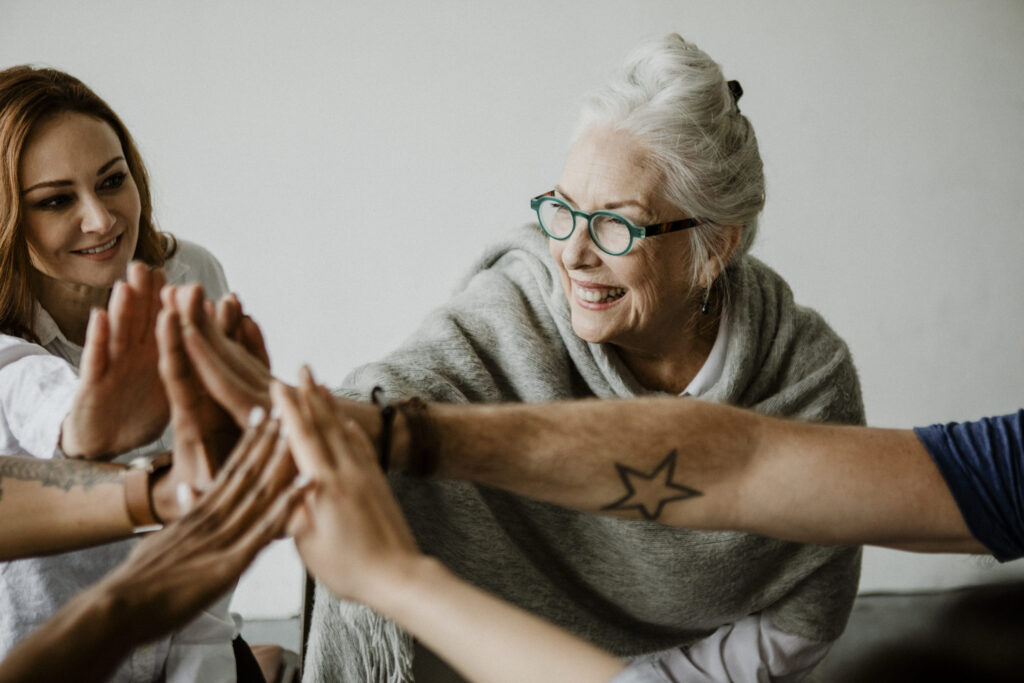Addiction is a disease of isolation. One of its key features is its ability to reinforce antisocial behaviors within the host, leading to more antisocial behaviors, so on and so forth. The addict at their lowest point, is entirely alone. Before getting clean, many of us share the experience of having a phone full of peoples’ numbers yet with no one to call. We alienate, avoid, lie, cheat, steal manipulate, wear myriad masks, all in an attempt to protect our addiction as it eats away at us. So it stands to reason that in the end of our active drug addiction, all we have is a shell of ourselves that existed before alcoholism or drug addiction, and perhaps a few loved ones holding onto hope. And so it is that when we find ourselves beginning the journey of addiction recovery at a drug addiction rehab center, even after the drugs have left our system, our antisocial behavioral pattern that served our addiction well, keeps us from progressing towards a quality, sober life. This is where the need for promoting pro-social behavior comes from.
The term “Prosocial Behavior” can be defined as, “voluntary actions that are intended to help or benefit another individual or group of individuals.” This could include donating to a charity anonymously or stopping to help a stranded person on the side of the road. For people in early alcoholism treatment or addiction treatment, this could mean giving money back to a store we stole from or to a charity supporting people who cannot afford a higher quality drug addiction treatment center in Colorado (or elsewhere!) Those examples are prosocial because in each case the individual does an action that doesn’t provide them with a tangible reward in return. So how does someone at an addiction treatment center and in early addiction recovery, shift from antisocial behavior to prosocial behavior? That’s where Colorado Medication Assisted Recovery’s expert addiction counselors, addiction therapists, mental health therapists, addiction medicine providers, case managers & other treatment providers come into play in a way that few other addiction treatment center staff can…
At CMAR we teach prosocial behavior, we have our patients practice prosocial behavior, and we model it as well. In every interaction we have with one of our patients, we seek to motivate the people in our care to engage in healthy human interactions. Though we are not a specifically 12 step drug treatment program, we understand that as far back as the founding of AA, alcoholism experts and addiction experts have understood that the root of recovery is prosocial inspirational conversations between two parties, at least one of which has true empathy for the other. We too seek to inspire prosocial behaviors, in part by showing examples (having senior patients act it out it, watching a short film with a clear pro-social message, reading short stories about the value received by practicing pro-social actions, writing and talking about prosocial behaviors and having our therapists (many of whom are in long-term addiction recovery themselves) model it. In-so-doing, we inspire our patients to seek to become more prosocial, having seen what benefits it can provide.
Humans are social creatures, so even in our darkest states of mind a part of us wants to connect with others, and our addiction treatment providers know how to positively connect with that part of the mind. Writing about things that are meaningful to ourselves like identity, values, the emotional outcome of helping others, and an ideal future self, helps lead people to choose prosocial behavior. In terms of practicing prosocial behavior, it’s all about performing prosocial actions and behaviors every day. We develop a prosocial mindset by literally helping others. Overtime (research suggests as short as 10 days), helping others becomes a habit, which then leads to the realizations of the extraordinary emotional and psychological benefits of prosocial behavior, thereby further ingraining the behaviors into the mind. Helping others is a particularly effective habit when those practicing it also have the opportunity to discuss the helping interactions, including how it felt. Helping others isn’t the be all end all though…
Prosocial behavior certainly involves helping others, but it also includes cooperative interactions, displaying gratitude, affirming others, engaging meaningfully with others, and even acting as our authentic selves. By doing these things, we improve our mental health, we increase the support system around us and thereby reducing relapse likelihood, we love ourselves as a member of something greater that we care about, and so on. Modeling is ultimately the most effective way in which we impart these qualities onto our patients.
To learn more about how CMAR incorporates pro-social behavior into its medication-assisted recovery program, reach out online or call 833.448.0127 today.


















